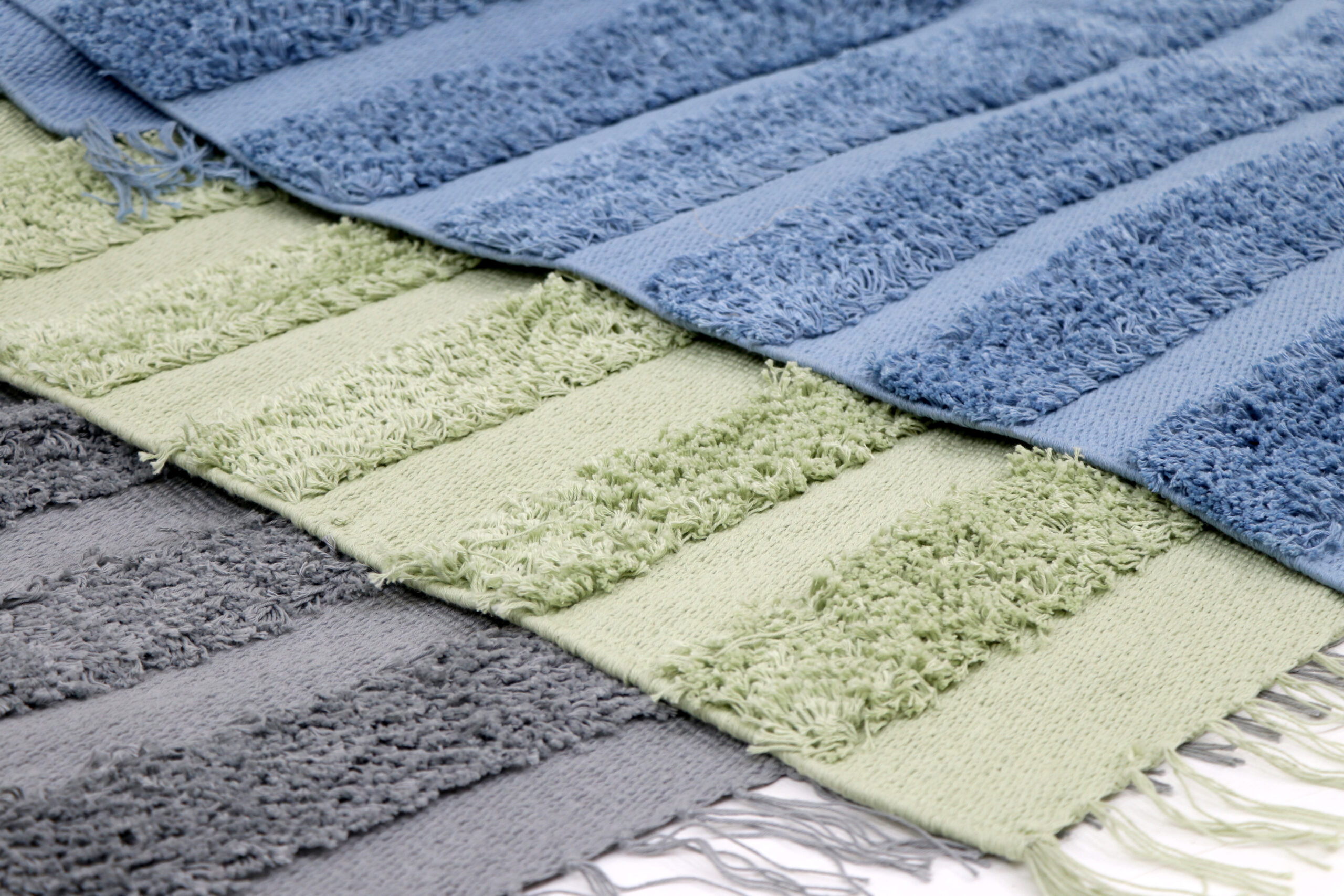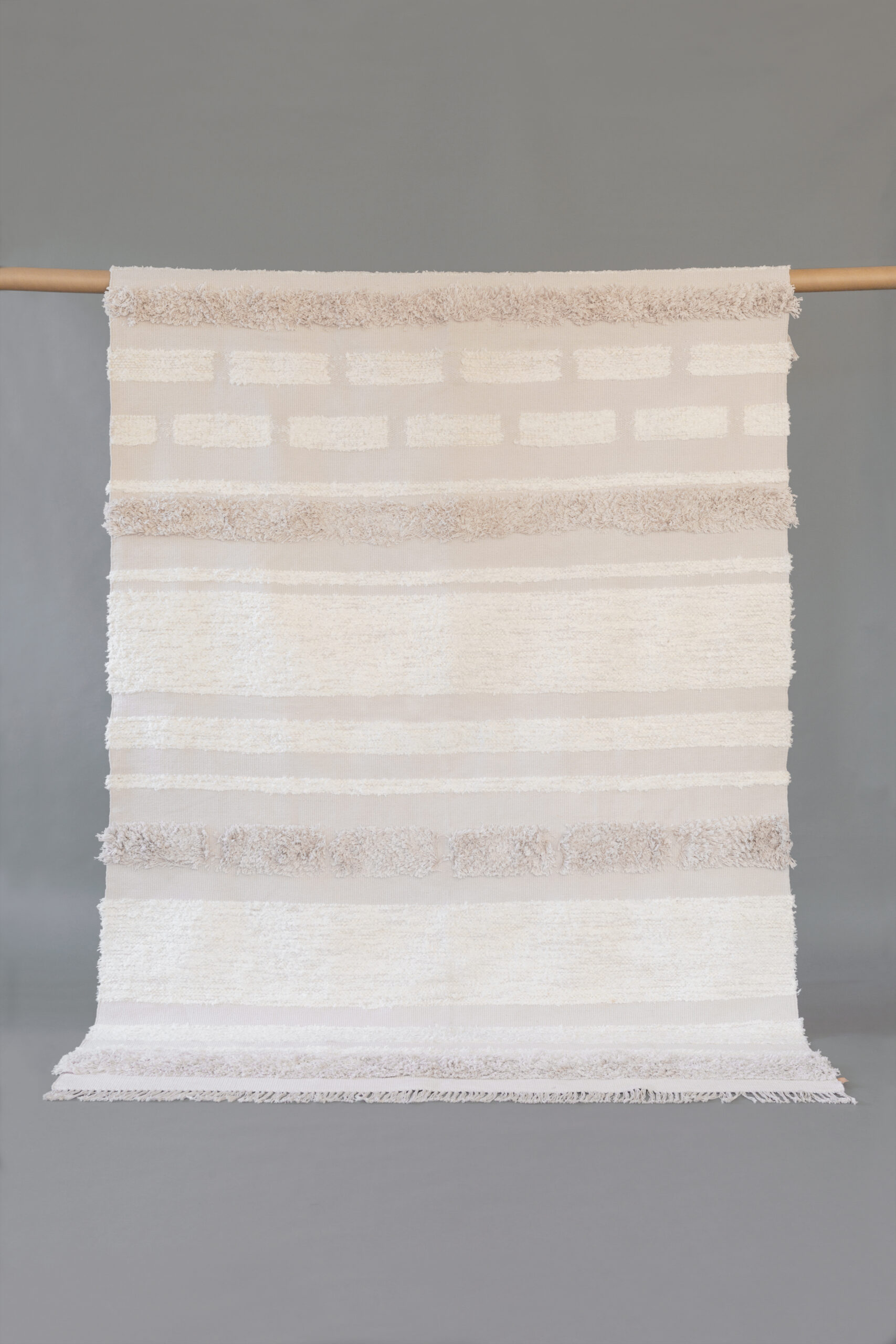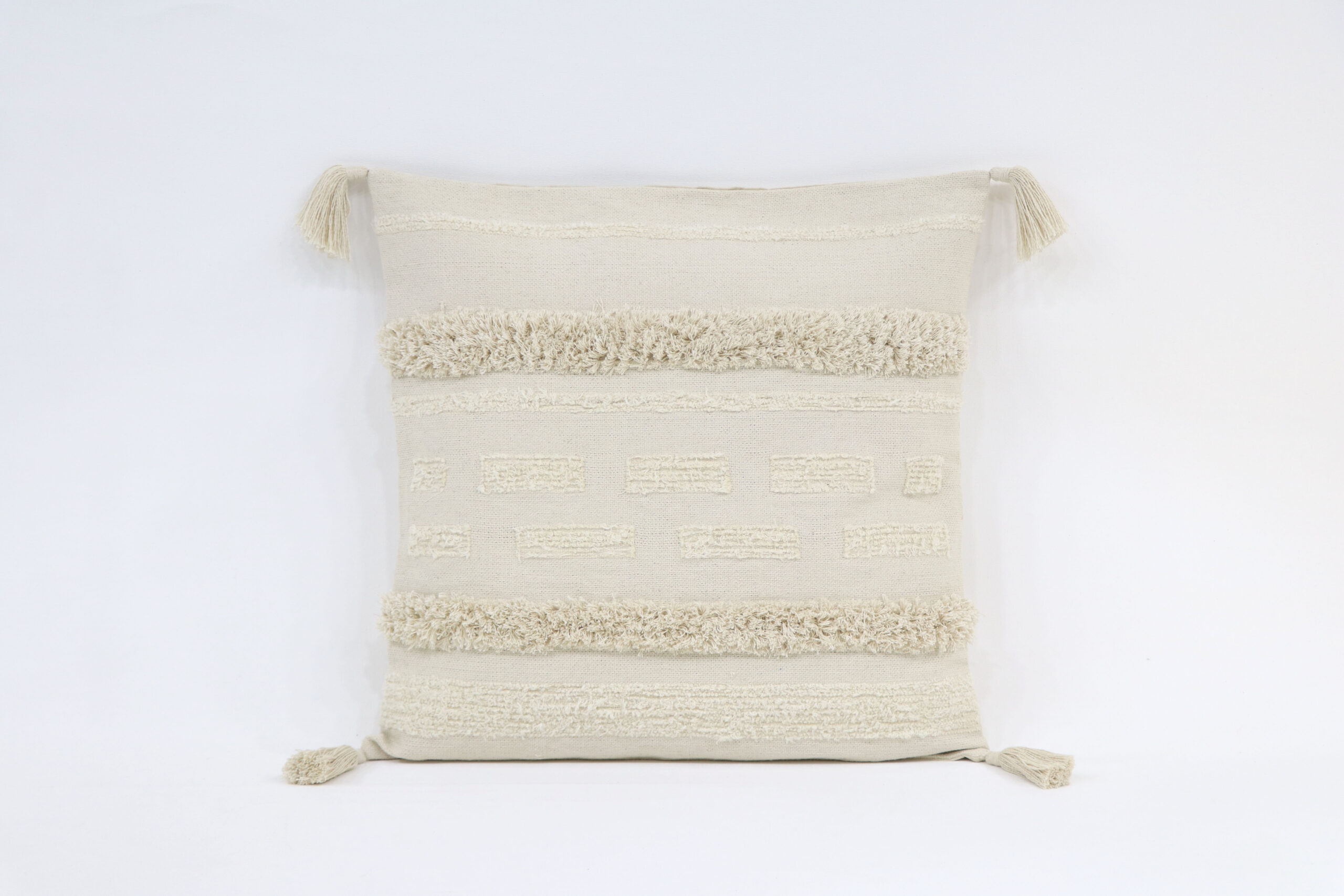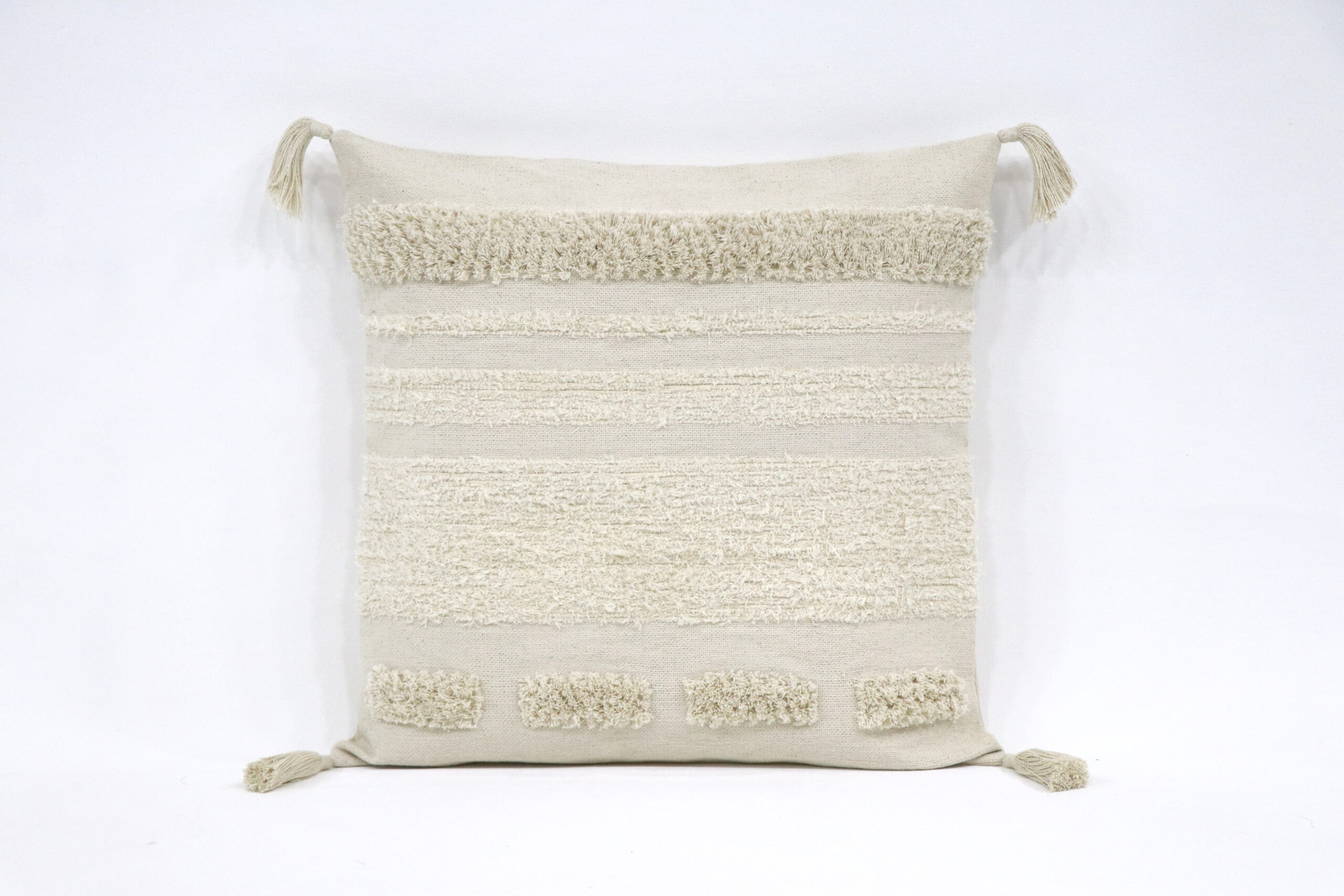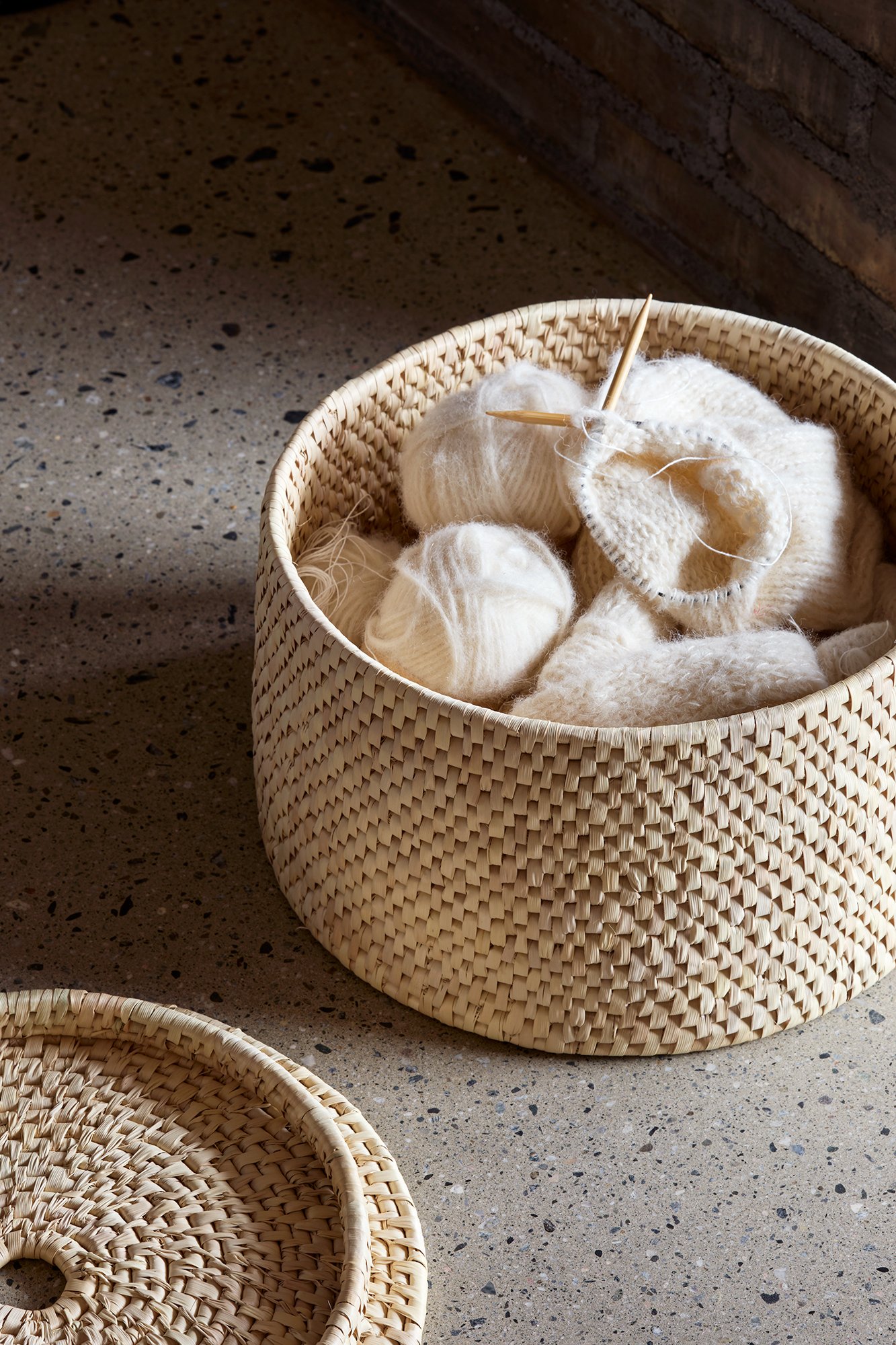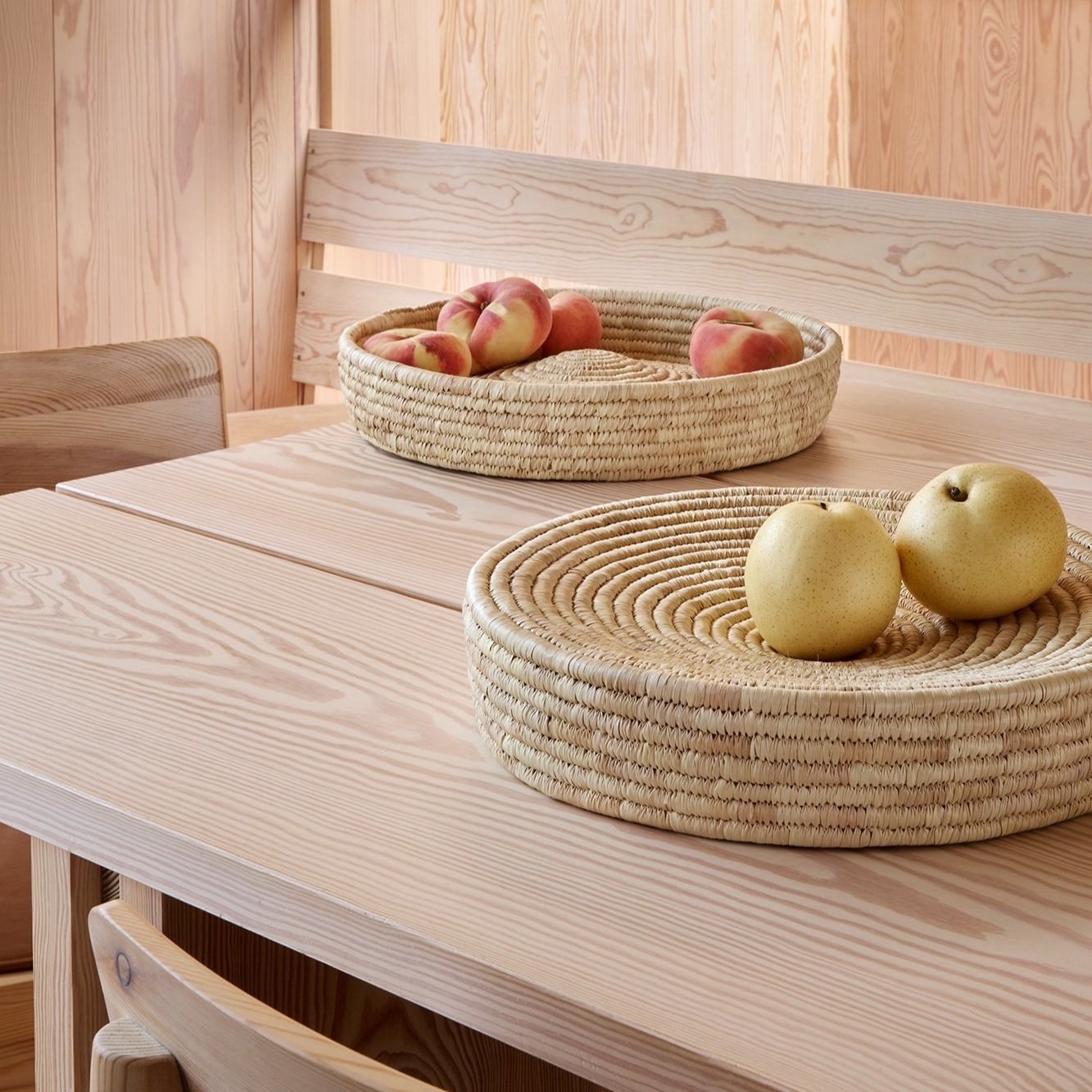
Bokhari – Der norsk design møter pakistansk håndverk – laget med omtanke for mennesker og miljø.
Hos Bokhari møtes norsk design og pakistansk håndverk i skapelsen av vakre interiør- og tekstilprodukter. I samarbeid med utvalgte norske designere legger Bokhari vekt på ansvarlig og bærekraftig produksjon, der kun naturlige, resirkulerte eller gjenbrukte materialer brukes i alle håndlagde produkter. Denne tilnærmingen bidrar ikke bare til trygge og anstendige arbeidsplasser for hundrevis av håndverkere i Pakistan, men sikrer også tilgang til utdanning for deres barn ved LAMS-skolen, som ligger i tilknytning til veveriet.
Buy objects by Bokhari
Et uformelt møte i 2014 mellom designer Runa Klock og sosial entreprenør Amar Bokhari la grunnlaget for å gjenopprette og videreføre visjonen om å skape unike håndlagde tekstil- og interiørprodukter. Gjennom dette arbeidet ble trygge arbeidsplasser for kvinner og menn, samt skolegang for deres barn, sikret – en innsats som startet for over 30 år siden. Historien om Bokhari går nemlig helt tilbake til slutten av 1980-tallet, da ideen om å produsere den tradisjonelle norske fillerya i Pakistan ble født en vakker vinterdag på Maihaugen i Lillehammer.
Folk. Planet. Velstand.
Bærekraft, slik Bokhari definerer det, omfatter tre essensielle dimensjoner: økonomi, miljø og sosiale forhold. Disse kalles ofte “trippel bunnlinje” – mennesker, planet og velstand. Balansen og sammenhengen mellom disse tre faktorene avgjør hva som er ekte bærekraft. Bokhari er dedikert til å finne innovative løsninger som reduserer miljøpåvirkningen, samtidig som de tilpasses forbruk og økonomiske behov. Slik sikres en mer rettferdig fordeling av ressurser, noe som gjør bærekraft oppnåelig både for mennesker og miljø.
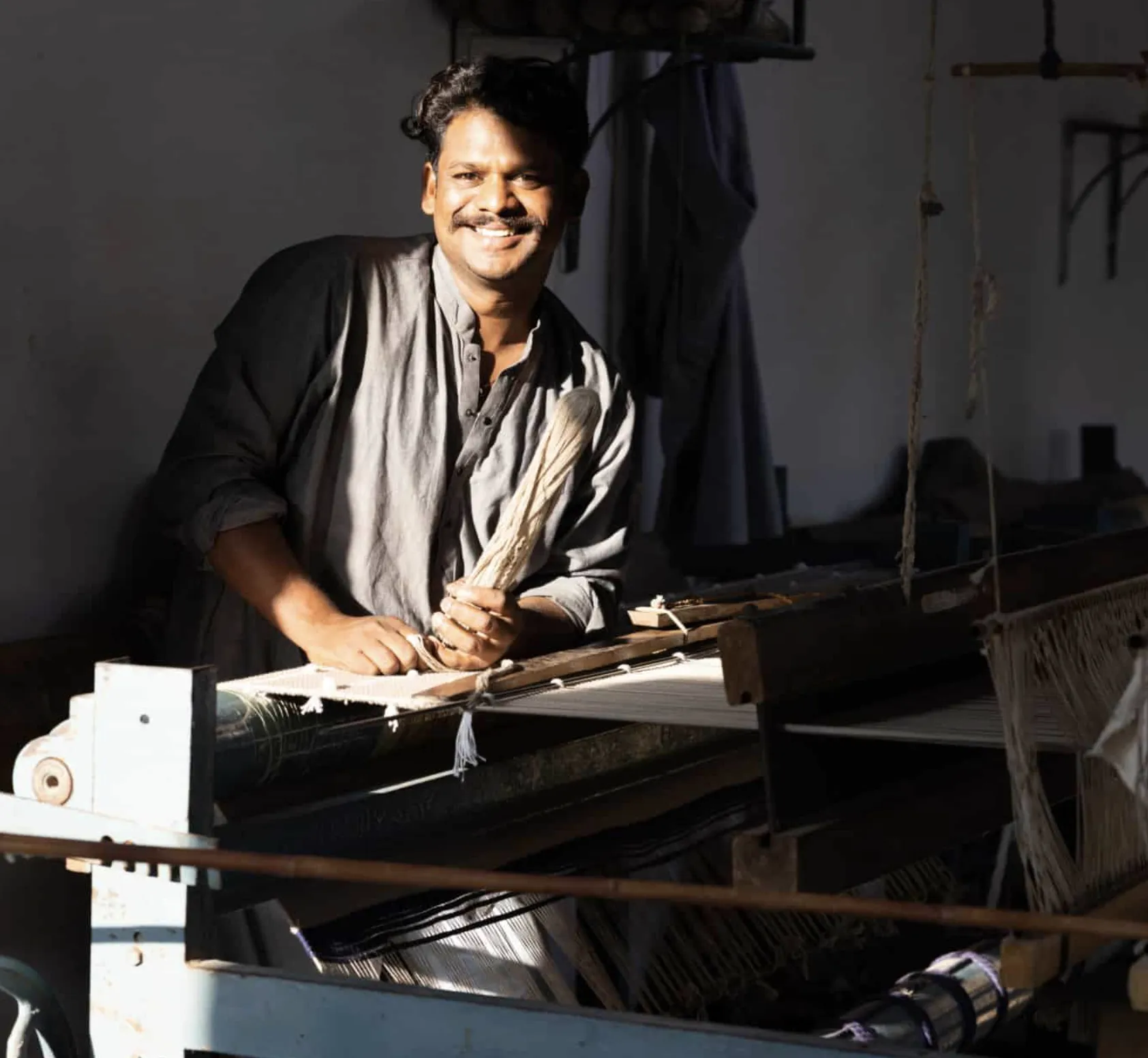
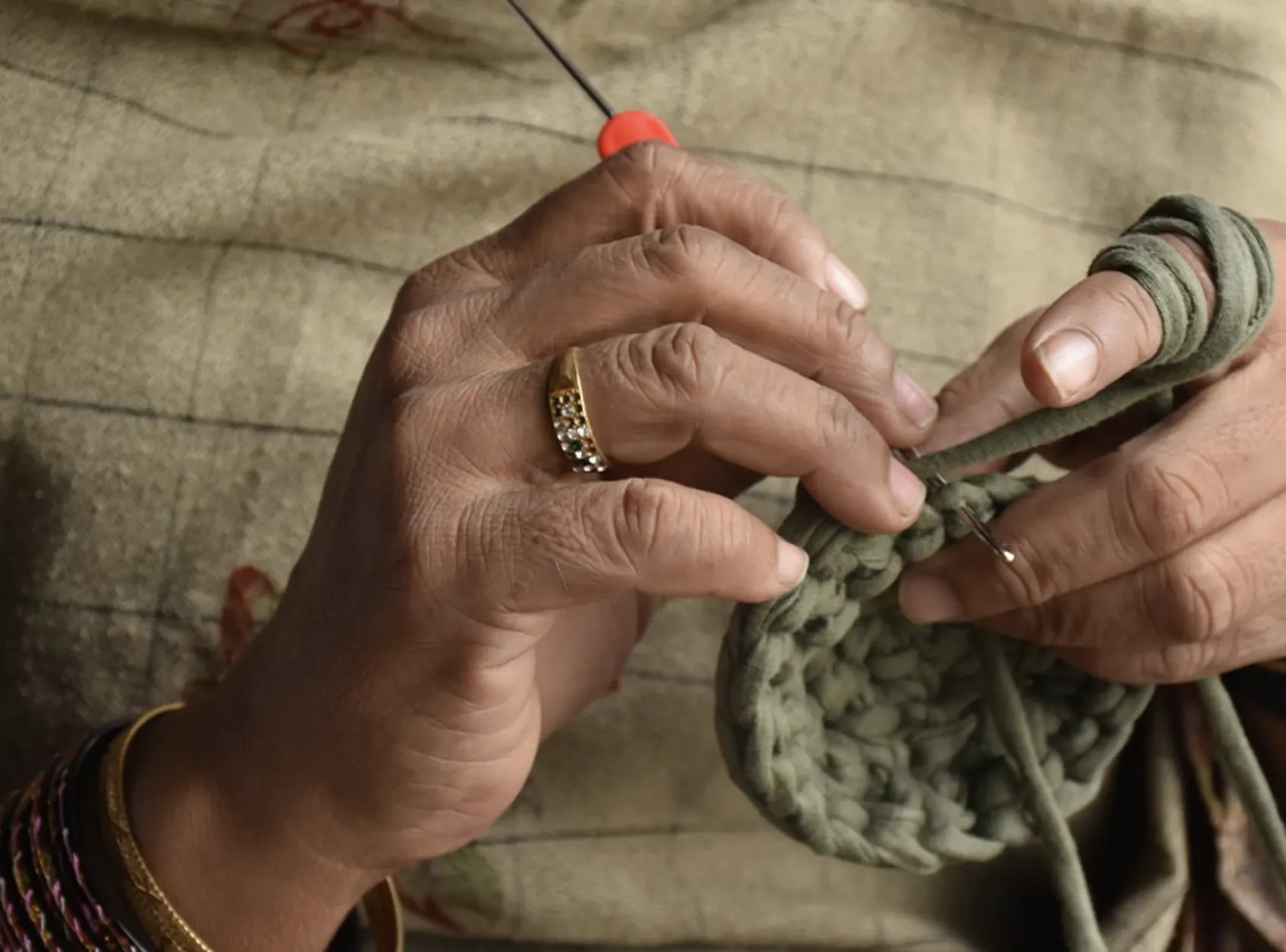
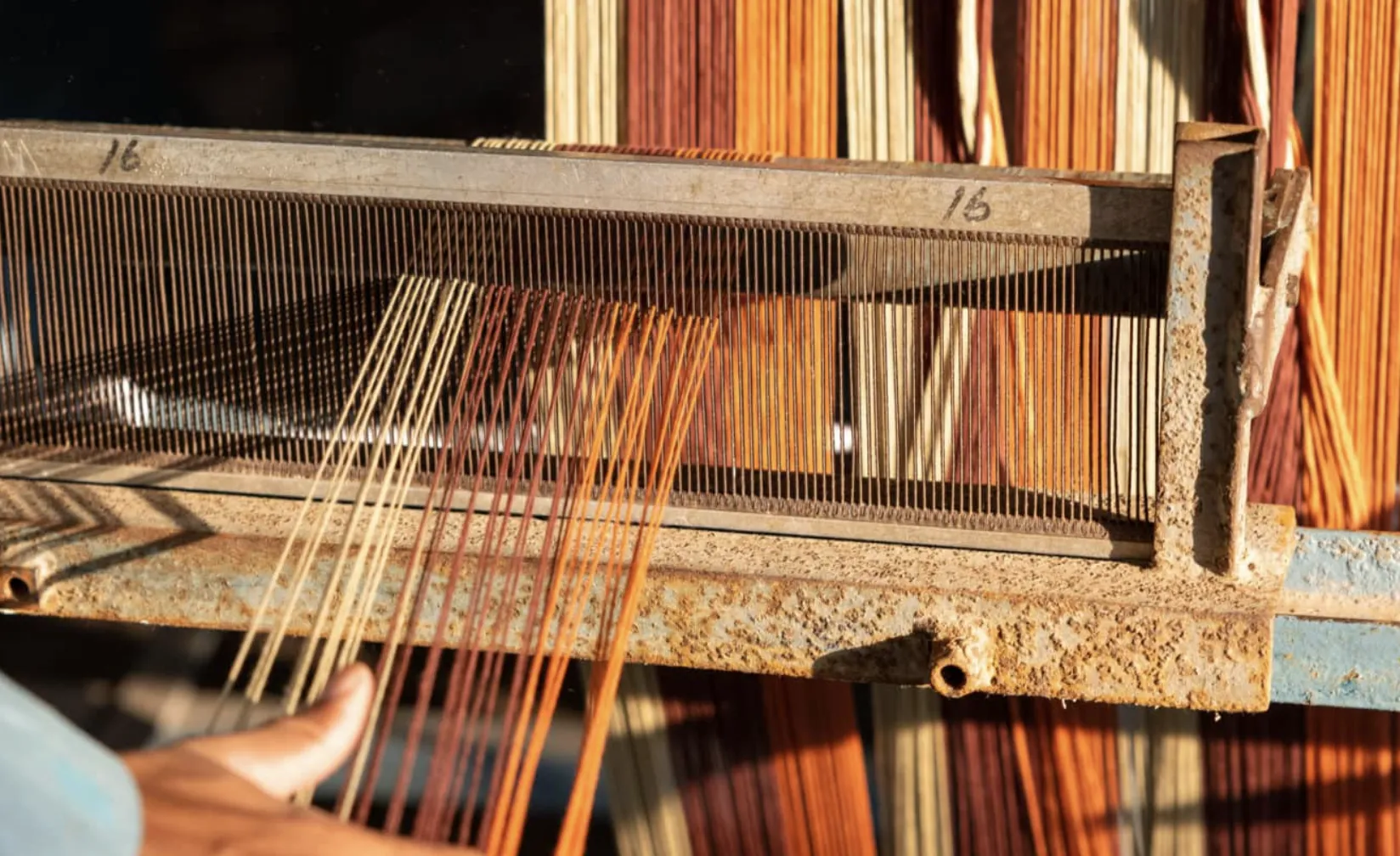

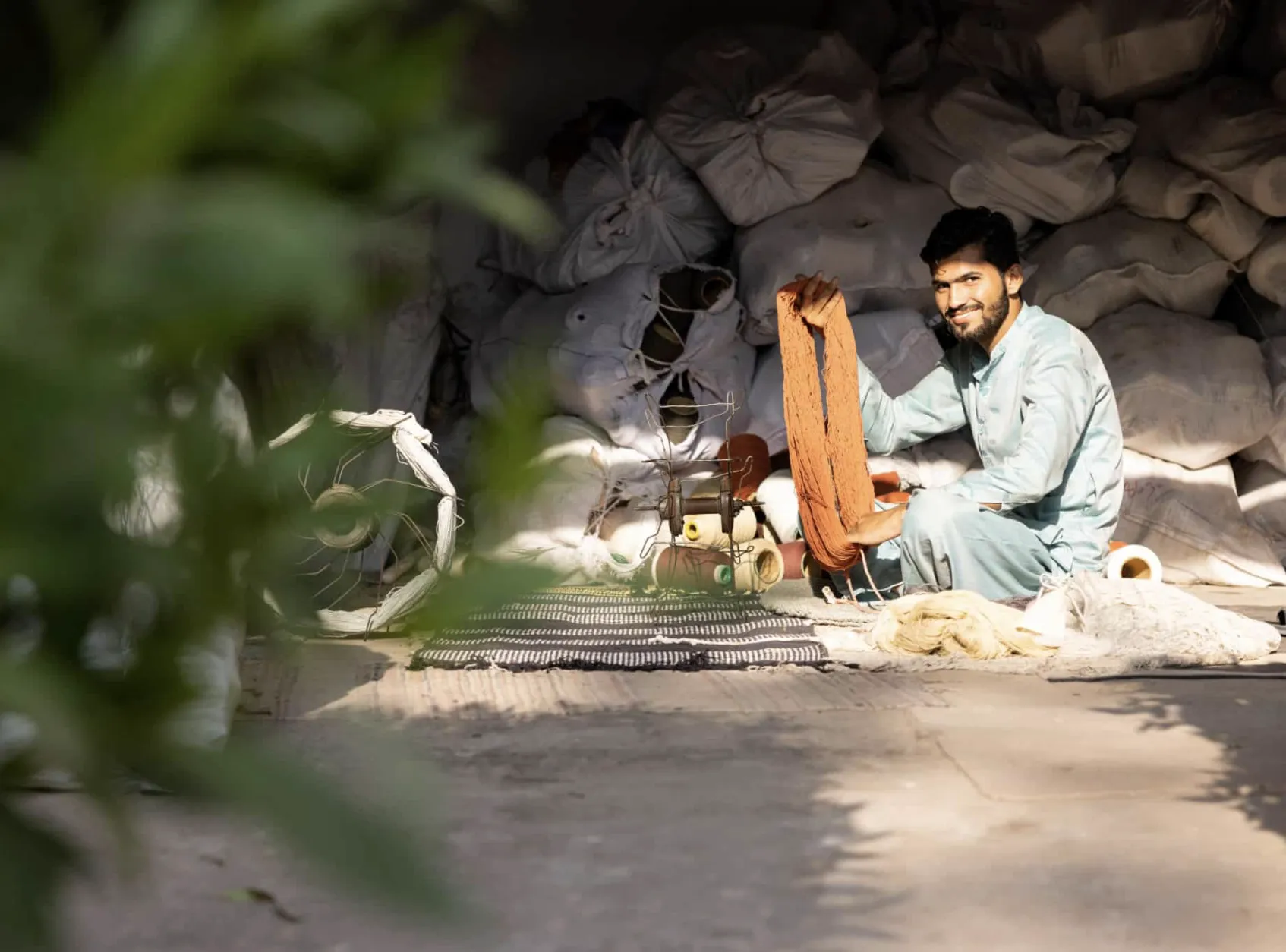
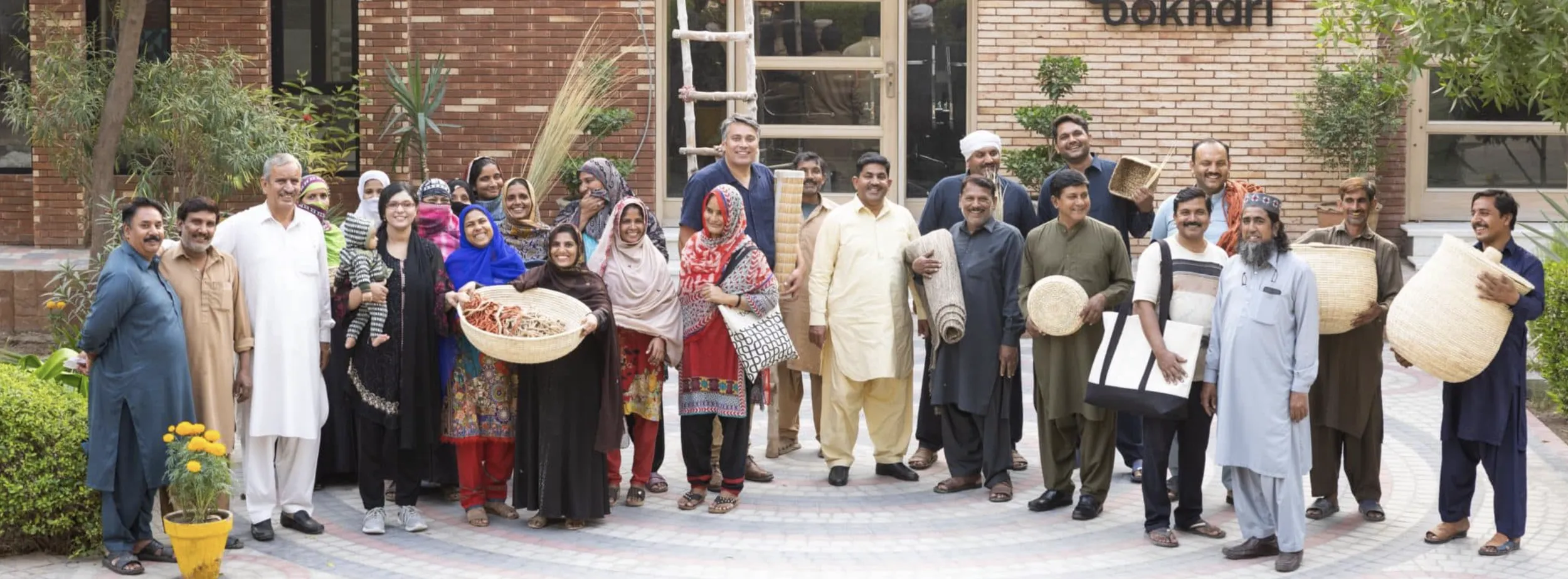
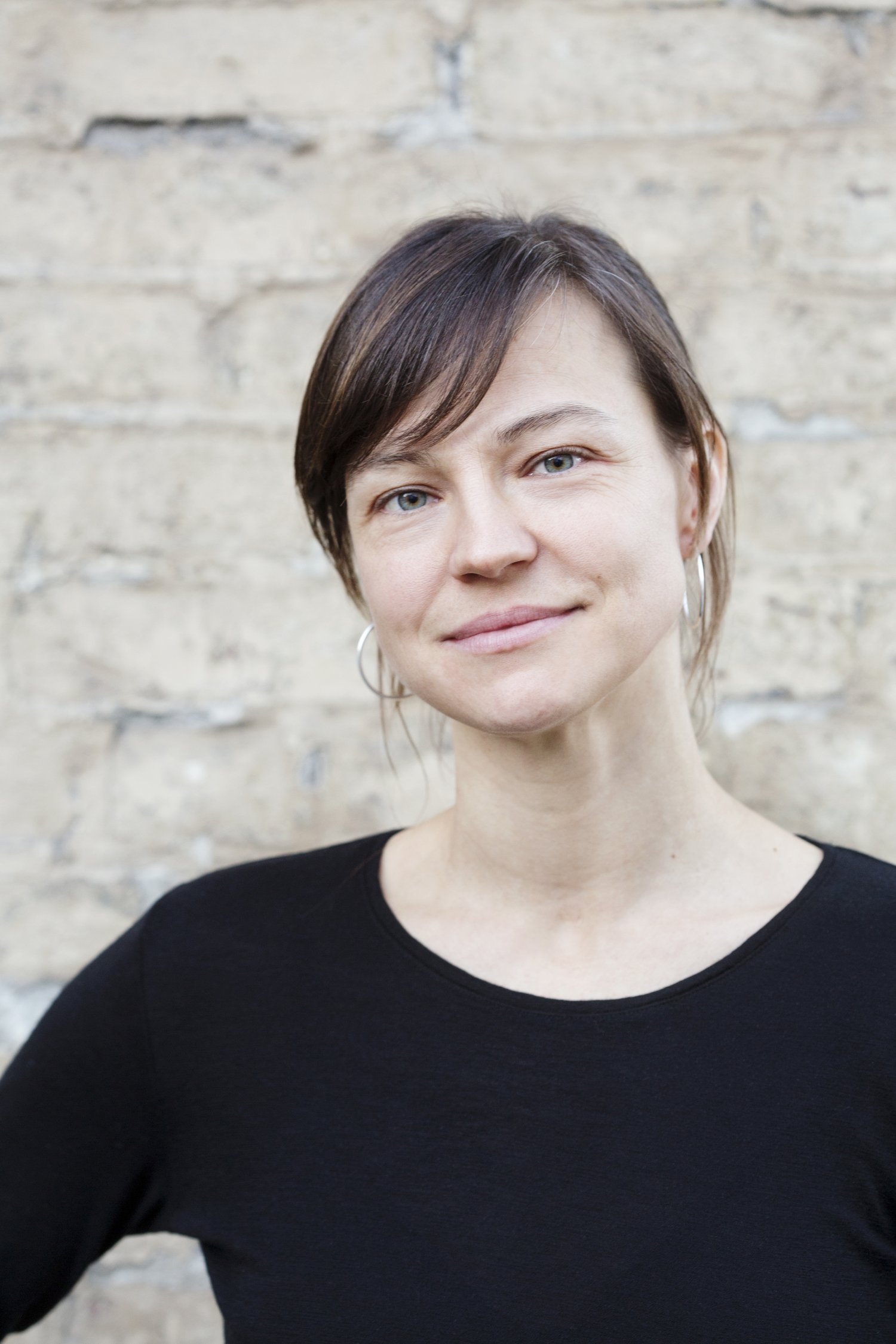

Hos Bokhari møtes norsk design og pakistansk håndverk i skapelsen av vakre interiør- og tekstilprodukter. I samarbeid med utvalgte norske designere legger Bokhari vekt på ansvarlig og bærekraftig produksjon, der kun naturlige, resirkulerte eller gjenbrukte materialer brukes i alle håndlagde produkter. Denne tilnærmingen bidrar ikke bare til trygge og anstendige arbeidsplasser for hundrevis av håndverkere i Pakistan, men sikrer også skolegang for deres barn ved LAMS-skolen, som ligger i tilknytning til veveriet.
Et uformelt møte i 2014 mellom designer Runa Klock og sosial entreprenør Amar Bokhari la grunnlaget for å gjenopprette og videreføre visjonen om å skape unike håndlagde tekstil- og interiørprodukter. Gjennom dette arbeidet ble trygge arbeidsplasser for kvinner og menn og skolegang for deres barn sikret – en innsats som startet for over 30 år siden. Historien om Bokhari strekker seg nemlig helt tilbake til slutten av 1980-tallet, da ideen om å produsere den tradisjonelle norske fillerya i Pakistan ble født en vakker vinterdag på Maihaugen i Lillehammer.
Bærekraftig. Menneskelig. Engasjert.
Har bedrifter et ansvar overfor mennesker og miljø? Hos Bokhari er svaret et klart og tydelig JA. Ved å ta ansvar utover forventningene og tøye grensene, streber de etter å gjøre sitt lille, men meningsfulle bidrag til en bedre verden.
Bokhari består av over 450 kvinner og menn i Pakistan og Norge. Kreativ leder Runa Klock og daglig leder Amar Bokhari, sammen med lageransvarlig Monica Breivik, håndterer alt arbeid i Norge, mens all produksjon foregår i Sultan Town, en forstad til Faisalabad i Pakistan. Der produseres alle våre produkter av dyktige håndverkere, hovedsakelig kvinner. Vår felles visjon er å bidra til en mer bærekraftig fremtid for mennesker og planeten.
Sertifiseringer
Sertifiseringer er svært nyttige for å sikre at all aktivitet ved veveriet vårt er i samsvar med gjeldende internasjonale standarder, samtidig som de bidrar til å sikre at våre leverandører også følger disse strenge kravene. Likevel har vi valgt å gå utover minimumskravene som sertifiseringene stiller. Vi jobber kontinuerlig for å sikre at vi i alt vi gjør, overgår forventningene – på denne måten kan vi bidra til en virkelig bærekraftig påvirkning på mennesker og planeten.
Vi har for tiden følgende sertifiseringer:
Global Recycled Standard, Fairtrade, ISO 14001: 2015, ISO 45001:2018, ISO 9001: 2015 and Sedex/SMETA.
